- Home
- George R. R. Martin
Aces Abroad wc-4 Page 10
Aces Abroad wc-4 Read online
Page 10
He started to park in front of the cantina, but instead decided to park around the side, away from curious eyes. He thought it was strange that he had seen no one since entering town, but the weather was fit for no one, especially him and his hangover. His Reeboks, another gift from the norteamericanos, flopped against the wet wood walkway that ran in front of the cantina before he entered the open doorway. It was a disconcerting sound amid a silence broken only by dripping water and the rain on the tin roofs. Even the dimness outside had not prepared him for the darkness within, or the years of tobacco smoke still trapped between the narrow walls. A few tattered and faded Feliz Navidad banners hung down from the gray ceiling.
"What do you want?" He was assaulted in Spanish from behind the long bar that lined the wall to his left. The force and hostility behind the question hurt his head. A stooped old Indian woman glared at him from behind the bar.
"Cerveza. "
Unconcerned for his preferences; she removed a bottle from the cooler behind the bar and flipped off the cap as he walked toward her. She set it on the stained and pitted wood of the bar. When Xbalanque reached for it, she put a small gnarled hand around the bottle and nodded her chin at him. He pulled some crumpled quetzals from his pocket and laid them on the bar. There was a crash of nearby thunder and they both tensed. He realized for the first time that the reason she was so hostile might not have anything to do with an early customer. She snatched the money off the bar as if to deny her fear and put it into the sash around her stained huipil.
"What do you have to eat?" Whatever was going on certainly had nothing to do with him. The beer tasted good, but it was not what he really needed.
"Black bean soup." The woman's answer was a statement, definitely not an invitation. It was accompanied by more thunder rolling up the valley.
"What else?" Looking around, Xbalanque belatedly realized that something was extremely wrong. Every cantina he had ever been in, no matter where or how large, had some old drunks sitting around waiting to try to pick up a free drink. And women, even old women such as this one, rarely worked in bars in these small villages.
"Nothing." Her face was closed to him as he looked for a clue to what was happening.
Another peal of thunder turned into the low growling of truck engines. Both their heads swung toward the door. Xbalanque stepped back from the bar and looked for a back way out. There was none. When he turned again to the old woman, she had her back to him. He ran for the door.
Green-clad soldiers piled off the backs of the two army transports parked in the middle of the square. The paths of the trucks were marked by the broken benches and shrubs they had run over on their way across the tiny park. As the soldiers hit the ground, they pulled their machine guns into firing position. Two-man teams immediately left the central area to search the houses lining the square. Other armed men moved out of the square through the rest of the village.
Palms spread against the plaster, Xbalanque slid along the outside wall of the cantina for the safety of the side street.
If he could get to the jeep, he had a chance to escape. He had made it to the corner of the building when one of the soldiers spotted him. At the soldier's order to halt, he jumped for the street, sliding in the mud, and dashed for the jeep.
Shots into the ground in front of him splashed him with mud. Xbalanque threw his hand up to protect his eyes and fell to his knees. Before he could get back up, a sullen-faced soldier grabbed his arm and hauled Xbalanque back to the square, his feet slipping in the thick mud as he scrambled to stand up and walk.
One of the young Ladino soldiers stood with his Uzi pointed at Xbalanque's head while he was shoved facedown in the mud and searched. Xbalanque had hidden the artifacts in the jeep, but the soldiers found the stash of quetzals in his Reeboks. One of them held the wad of money up to the army lieutenant in charge. The lieutenant looked disgusted at the condition of the bills, but he put them in his own pocket anyway. Xbalanque did not protest. Through the excruciating pain in his head that had begun when he fled the soldiers, he was trying to decide what he could say to get out of this. If they knew the jeep was stolen, he was dead.
The sound of more gunfire made him wince into the mud. He raised his head slightly, knocking it into the barrel of the gun above him. The soldier holding it pulled back enough for him to see another man being dragged from inside the dilapidated yellow school on the west side of the square. He heard children crying inside the small building. The second prisoner was also an Indian, tall with eyeglasses knocked askew on his narrow face. The two soldiers escorting him allowed him to regain his feet before presenting him to the lieutenant.
The schoolteacher straightened his glasses before staring directly into the lieutenant's mirrored sunglasses. Xbalanque knew he was in trouble; the schoolteacher was deliberately trying to anger the army officer. It could only result in worse consequences than they already faced.
The lieutenant brought up his swagger stick and knocked the teacher's glasses off his face. When the teacher bent down to pick them up, the officer struck him across the side of the head. With blood dripping down his face onto his white European shirt, the teacher replaced his glasses. The right lens was shattered. Xbalanque began looking for an escape route. He hoped that his guard might be sufficiently distracted. Looking sideways up at the young man with the Uzi, he saw that the boy had not taken his eyes off him.
"You are a communist." The lieutenant made it a statement, not a question, directed to the teacher. Before the teacher could reply, the officer glanced toward the school house with annoyance. The children inside were still crying. He swung his swagger stick toward the school and nodded at a soldier to his left. Without aiming, the soldier panned his machine gun across the building, breaking windows and pocking the plaster. A few screams erupted from inside, then silence.
"You are a traitor and an enemy to Guatemala." He brought the stick up across the other side of the teacher's head. There was more blood, and Xbalanque began to feel sick and somehow wrong.
"Where are the other traitors?"
"There are no other traitors." The teacher shrugged and smiled.
"Fernandez, the church." The lieutenant spoke to a soldier smoking a cigarette leaning against one of the trucks. Fernandez tossed away the cigarette and picked up the thick tube propped beside him against the truck. While he aimed, another of the men around the trucks shoved a rocket into the launcher.
Turning toward the old colonial church, Xbalanque saw, for the first time, the village priest standing outside arguing with one of the search teams as the soldiers stood there holding silver candlesticks. There was an explosion from the rocket launcher, followed a split second later by the blast as the church fell in on itself. The soldiers standing outside had seen it coming and fallen to the ground. The priest collapsed, from shock or injuries, Xbalanque could not tell. By now he was feeling the pain in every joint and muscle.
The rain mixed with the blood on the teacher's face and, as it dripped down, stained his shirt pink. Xbalanque didn't see any more. The pain had grown until he curled up in the mud, clutching his knees to his chest. Something was happening. It must be because he had never felt such fear before. He knew that he was going to die. The damned old gods had led him to this.
He barely heard the order given to move him up against the school wall with the teacher. The lieutenant didn't even care who he was. For some reason the fact that the officer hadn't even bothered to question him seemed the worst indignity of all.
Xbalanque shook as he stood with his back against the already bullet-marked wall. The soldiers left them there alone and backed off, out of the line of fire. The pain had begun to come in waves, driving out his fear, driving out everything except the enormous weight of the agony in his body. He stared through the soldiers gathering for the firing squad at the rainbow forming between the bright, jade green mountains as the sun finally came out. The teacher patted him on the shoulder.
"Are you all right?" His companio
n actually looked concerned. Xbalanque was silent as he gathered sufficient energy not to collapse to the ground.
"See, God has a sense of humor." The madman smiled at him as if at a crying child. Xbalanque cursed him in the language of his Quiche grandmother, a tongue he had not spoken before his dream of Xibalba.
"We die for the lives of our people." The schoolteacher lifted his head proudly and faced the soldiers' guns as they were raised to aim.
"No. Not again!" Xbalanque rushed the guns as they fired. His force knocked the other man to his knees. As he moved, Xbalanque realized in one small part of his brain that the exquisite agony had gone. As the bullets sped to meet his charge, he felt only stronger, more powerful than he ever had before. The bullets reached him.
Xbalanque hesitated as they struck. He waited an instant for the inevitable pain and final darkness. They didn't come. He looked at the soldiers; they stared back wide-eyed. Some ran for the trucks. Others dropped their guns and simply ran. A few held their ground and kept firing, looking to the lieutenant, who was backing up slowly toward the trucks and calling for Fernandez.
The warrior scooped up a brick from the street and, crying out his name in a mixture of fear and exhilaration, threw it with all his strength at one of the trucks. As it flew, it struck a soldier, crushing his head and splattering blood and brains across his fleeing companions before flying on toward the vehicle. The soldier had slowed its momentum. It was dropping as it streaked toward the truck. The brick struck the gas tank and the transport exploded.
Xbalanque stopped his rush toward the soldiers and stared at the fiery scene. Men in flames-soldiers who had made the shelter of the troop carrier-screamed. The scene was right out of one of the American movies he had watched in the city. But the movies hadn't had the smell of petrol, burning canvas and rubber, and underneath everything else the stench of burning flesh. He began backing away.
Remotely, as if through heavy padding, he felt someone grab his arm. Xbalanque turned to strike his enemy. The teacher was staring down at him through the shattered glasses.
"Se habla espanol?" The taller man was guiding him away from the square up a side street.
"St, si. " Xbalanque was beginning to have time to wonder what was happening. He knew he had never before been able to do anything such as this. Something was not right. What had that vision done to him? He was involuntarily relaxing and he felt the strength draining from him. He began to lean against the wall of a peeling pale-red house.
"Madre de Dios-we have to keep moving." The teacher hauled at him. "They'll bring up the artillery. You're good with bullets, but can you fend off rockets?"
"I don't know…" Xbalanque stopped to think about this for a moment.
"We'll figure it out later. Come on."
Xbalanque realized that the man was right, but it was so difficult. With the fear of death gone, he felt as though he had lost not only the new power but also his regular strength. He looked up the street toward the forested mountainside so far away above the houses. The trees were safety. The soldiers would never follow them into the forest where guerrillas could be waiting to ambush them. The- flat sound of a shot brought him back.
The teacher pulled him away from the house and, keeping his hand underneath Xbalanque's arm, steered him toward the green refuge ahead. They cut left between two small houses and moved sideways along the narrow, muddy alley that divided the clapboard and plaster buildings. Xbalanque was moving now, sliding and skidding in the slippery brown mud. Past rear gardens, the alley turned to a path leading up the steep hillside into the trees. The open ground was at least fifteen meters of utter exposure.
He ran into his compatriot as the other man stopped and peered around the corner of the house on the left.
"Clear." The teacher had not relinquished his grip on Xbalanque's arm. "Can you run?"
"St."
After a frightened dash Xbalanque collapsed a few yards into the forest. The rain forest was thick enough to prevent their being spotted if they stayed still and quiet. They heard the soldiers arguing below until a sergeant came by and ordered them back to the square. Someone in the village would die in their place. The teacher was sweating and nervous. Xbalanque wondered if it was for their unwitting victim or his own unexpected survival. A bullet in the back was not as romantic as a firing squad.
As they trudged deeper into the wet mountains seeking to avoid the soldiers, Xbalanque's companion introduced himself. The teacher was Esteban Akabal, a devoted communist and freedom fighter. Xbalanque listened without comment to a long lecture on the evils of the existing government and the coming revolution. He only wondered at where Akabal found the energy to go on. When Akabal at last slowed down, panting as they worked their way up a difficult trail, Xbalanque asked him why he worked with Ladinos.
"It is necessary to work together for the greater good. The divisions between Quiche and Ladino are created and encouraged by the repressive regime under which we labor. They are false and, once removed, will no longer hamper the worker's natural desire to join with his fellow worker." At a level section of the path both men paused to rest.
"The Ladinos will use us, but nothing will change their feelings or mine." Xbalanque shook his head. "I have no desire to join your workers army. How do I get a road to the city?"
"You can't take a main road. The soldiers will shoot you on sight." Akabal looked at the cuts and bruises Xbalanque had incurred on' their climb. "Your talent seems very selective."
"I don't think it's a talent." Xbalanque wiped off some of the dried blood on his jeans. "I had a dream about the gods."
They gave me my name and my powers. After the dream I could do-what I did 'in Xepon.
"The norteamericanos gave you your powers. You are what they call an ace." Akabal examined him closely. "I know of few others this far south of the United States."
"It's a disease actually. A red-haired alien from outer space brought it to Earth. Or so they claim, since biological warfare has been outlawed. Most of those who caught it died. Some were changed."
" I have seen them begging in the city. It was bad sometimes." Xbalanque shrugged. "But I'm not like that."
"A very few become something more than they were. The norteamericanos worship these aces." Akabal shook his head. "Typical exploitation of the masses by fascist media masters."
"You know, you could be very important to our fight." The schoolteacher leaned forward. "The mythic element, a tie to our people's past. It would be good, very good, for us."
"I don't think so. I'm going to the city." Chagrined, Xbalanque remembered the treasure he had left in the jeep. "After I return to Xepon."
"The people need you. You could be a great leader."
"I've heard this before." Xbalanque was uncertain. The offer was attractive, but he wanted to be more than the people's-army figurehead. With his power he wanted to do something, something with money in it. But first he had to get to Guatemala City.
"Let me help you." Akabal had that intense look of desire that the graduate students had when they wanted to sleep with the Mayan priest-king; or as one of them had said, a reasonable facsimile thereof. Combined with the blood now caked on his face, it made Akabal appear to be the devil himself. Xbalanque backed off a couple steps.
"No, thank you. I'm just going to go back to Xepon in the morning, get my jeep, and leave." He started back down the trail. Over his shoulder he spoke to Akabal. "Thanks for your help."
"Wait. It's getting dark. You'll never make it back down at night." The teacher sat back down on a rock beside the trail. "We're far enough in that, even with more men, they would not dare follow us. We'll stay here tonight, and tomorrow morning we'll start back for the village. It will be safe. It will take the lieutenant at least a day to explain the loss of his truck and get reinforcements."
Xbalanque stopped and turned back. "No more talk about armies?"
"No, I promise." Akabal smiled and gestured for Xbalanque to take another rock.
"Do you have anything to eat? I'm very hungry." Xbalanque could not remember ever having been this hungry, even in the worst parts of his childhood.
"No. But if we were in New York, you could go to a restaurant called Aces High. It is just for people like you… " As Akabal told him about life in the United States for the aces, Xbalanque gathered some branches to protect against the wet ground and lay down on them. He was asleep long before Akabal ended his speech.
In the morning before dawn they were on the trail back down. Akabal had found some nuts and edible plants for food, but Xbalanque remained ravenous and in pain. Still, they made it back to the village in much less time than it had taken them to toil up the trail the day before.
Hunapu found that wearing the heavy cotton padding while he was walking was clumsy and hot, so he wrapped it up and tied it to his back. He had walked a day and a night without sleep when he came to a small Indian village only slightly larger than his own. Hunapu stopped and wrapped the padding around himself as Jose had done it. The dress of a warrior and a ballplayer, he thought proudly, and held his head high. The people here were not Lacandones and they looked at him suspiciously as he entered with the sunrise.
An old man walked out into the main path that led between the thatched houses. He called out a greeting to Hunapu in a tongue that was similar but not quite the same as that of his people. Hunapu introduced himself to the t'o'ohil as he walked up to him. The village guardian stared at the young man for a full minute of contemplation before inviting him into his home, the largest house Hunapu had ever entered.
While most of the village waited outside for the guardian to tell them about this morning apparition, the two men spoke and drank coffee. It was a difficult conversation at first, but Hunapu soon understood the old man's pronunciations and was able to make himself and his mission known. When Hunapu was finished, the t'o'ohil sat back and called his three sons to him. They stood behind him and waited while he spoke to Hunapu.

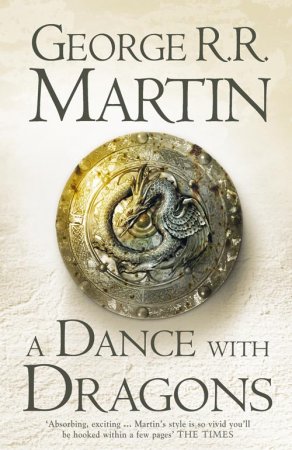 A Dance with Dragons
A Dance with Dragons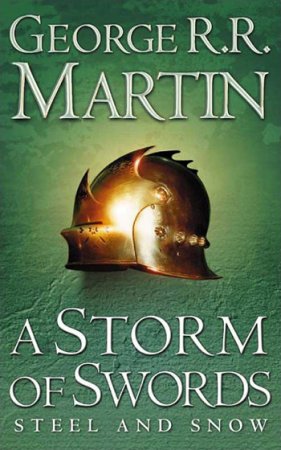 A Storm of Swords
A Storm of Swords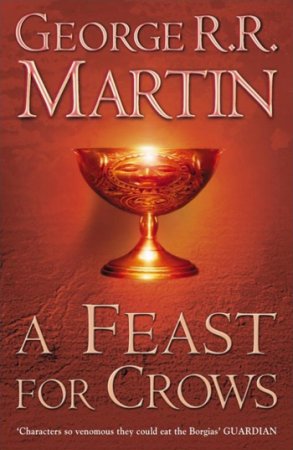 A Feast for Crows
A Feast for Crows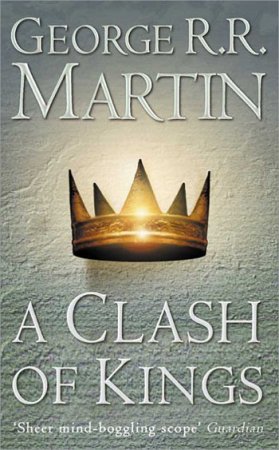 A Clash of Kings
A Clash of Kings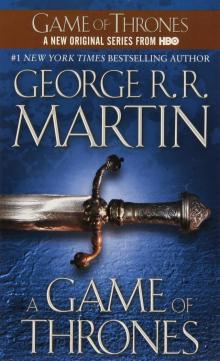 A Game of Thrones
A Game of Thrones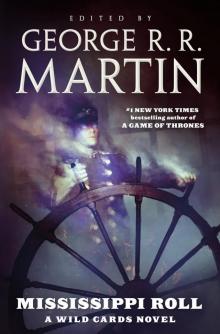 Mississippi Roll
Mississippi Roll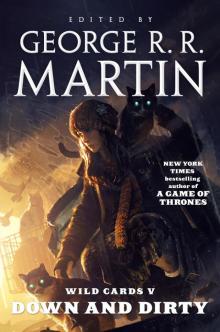 Wild Cards V: Down and Dirty
Wild Cards V: Down and Dirty Busted Flush
Busted Flush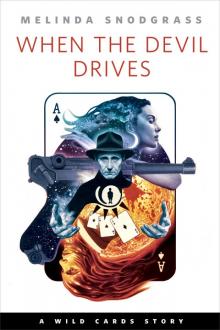 When the Devil Drives
When the Devil Drives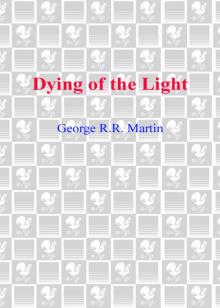 Dying of the Light
Dying of the Light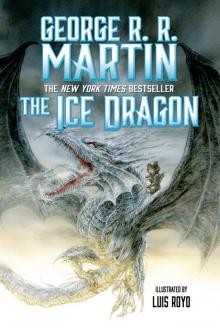 The Ice Dragon
The Ice Dragon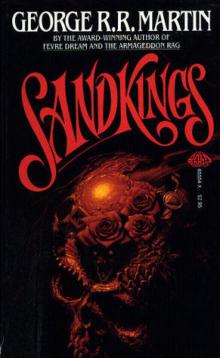 Sandkings
Sandkings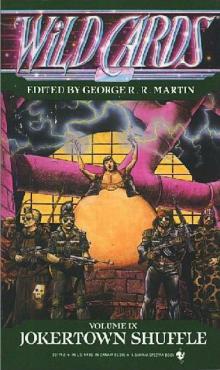 Jokertown Shuffle
Jokertown Shuffle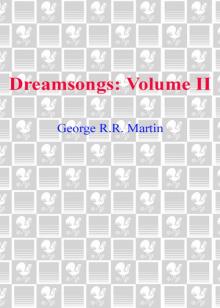 Dreamsongs. Volume II
Dreamsongs. Volume II Deuces Down
Deuces Down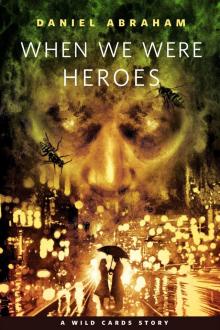 When We Were Heroes
When We Were Heroes Warriors
Warriors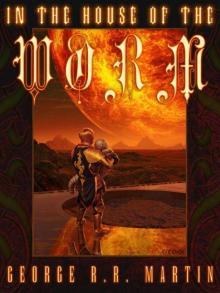 In the House of the Worm
In the House of the Worm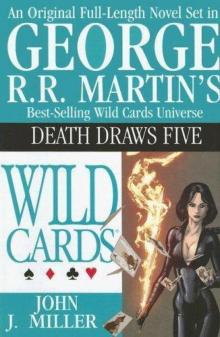 Death Draws Five
Death Draws Five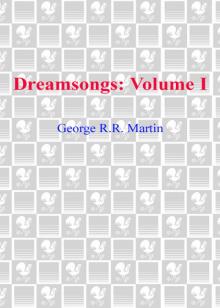 Dreamsongs. Volume I
Dreamsongs. Volume I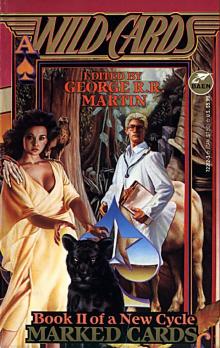 Marked Cards
Marked Cards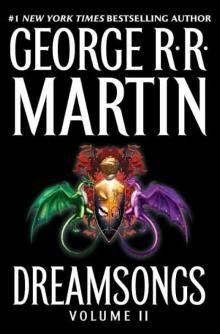 Dreamsongs
Dreamsongs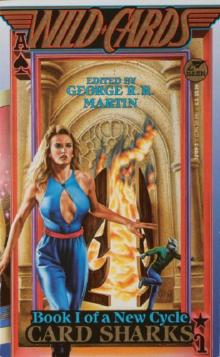 Card Sharks
Card Sharks Dangerous Women
Dangerous Women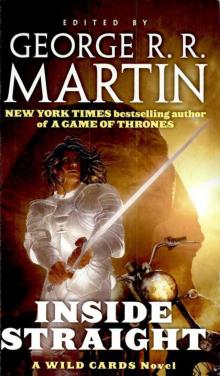 Inside Straight
Inside Straight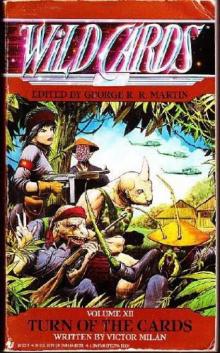 Turn of the Cards
Turn of the Cards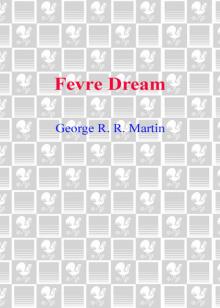 Fevre Dream
Fevre Dream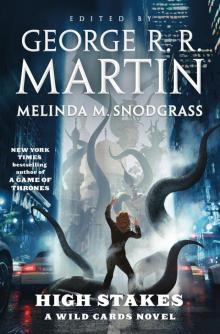 High Stakes: A Wild Cards Novel
High Stakes: A Wild Cards Novel Windhaven
Windhaven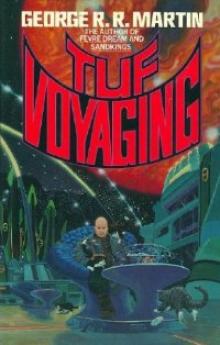 Tuf Voyaging
Tuf Voyaging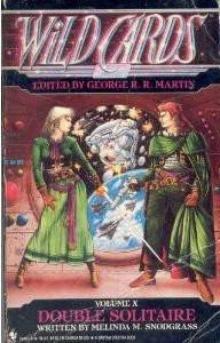 Double Solitaire
Double Solitaire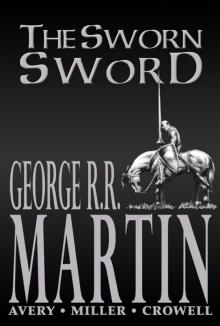 The Sworn Sword
The Sworn Sword Low Chicago
Low Chicago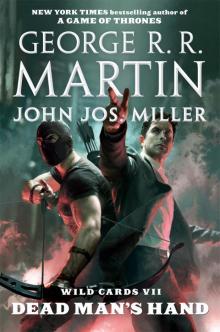 Dead Man's Hand
Dead Man's Hand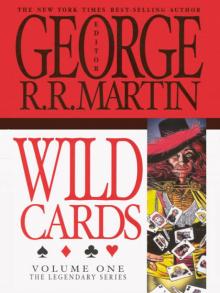 Wild Cards
Wild Cards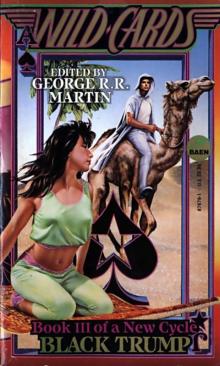 Black Trump
Black Trump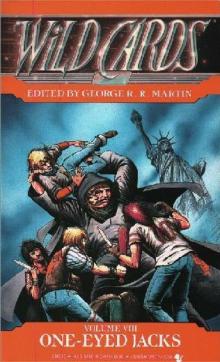 One Eyed Jacks
One Eyed Jacks Wild Cards: Aces Abroad
Wild Cards: Aces Abroad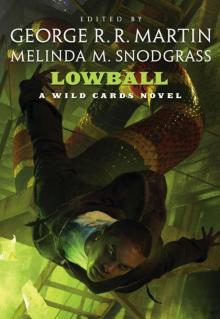 Lowball: A Wild Cards Novel
Lowball: A Wild Cards Novel Double Solitaire (2019 Edition)
Double Solitaire (2019 Edition)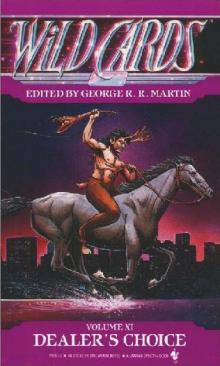 Dealer's Choice
Dealer's Choice Ace in the Hole
Ace in the Hole A Song for Lya: And Other Stories
A Song for Lya: And Other Stories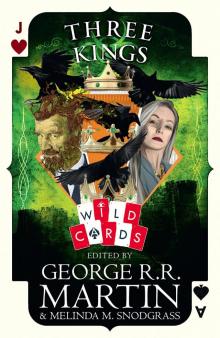 Three Kings
Three Kings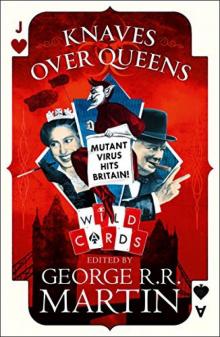 Knaves Over Queens
Knaves Over Queens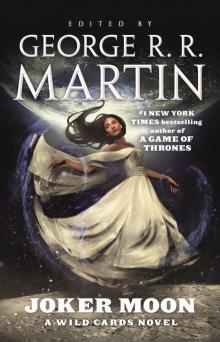 Joker Moon
Joker Moon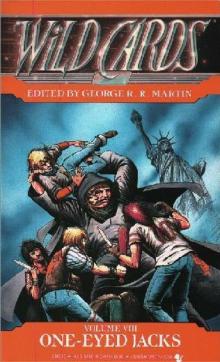 One Eyed Jacks wc-8
One Eyed Jacks wc-8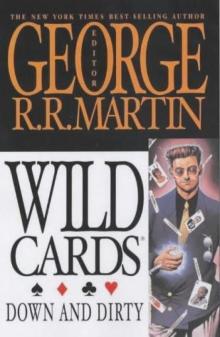 Down And Dirty wc-5
Down And Dirty wc-5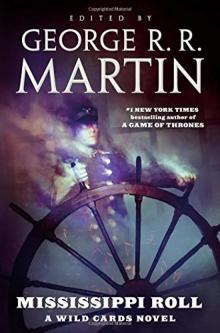 Mississippi Roll_A Wild Cards Novel
Mississippi Roll_A Wild Cards Novel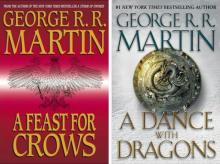 A Feast for Dragons
A Feast for Dragons The Sworn Sword ttodae-2
The Sworn Sword ttodae-2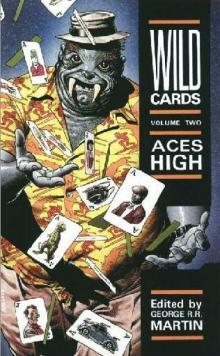 Aces High wc-2
Aces High wc-2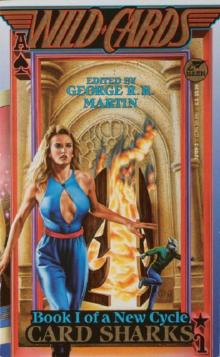 Wild Cards 13 : Card Sharks
Wild Cards 13 : Card Sharks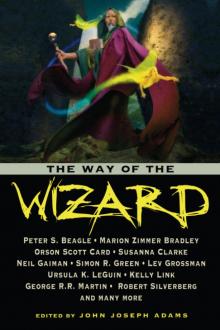 Way of the Wizard
Way of the Wizard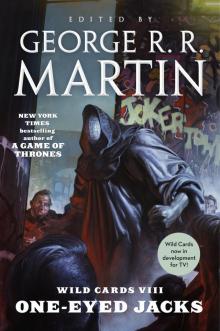 Wild Cards VIII: One-Eyed Jacks
Wild Cards VIII: One-Eyed Jacks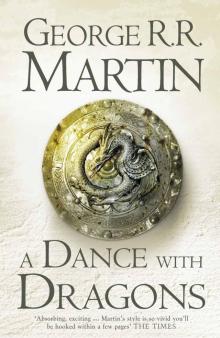 A Dance With Dragons: Book 5 of A Song of Ice and Fire (Song of Ice & Fire 5)
A Dance With Dragons: Book 5 of A Song of Ice and Fire (Song of Ice & Fire 5) The Princess and The Queen, Or, The Blacks and The Greens (a song of ice and fire)
The Princess and The Queen, Or, The Blacks and The Greens (a song of ice and fire)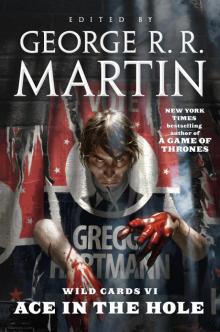 Wild Cards VI--Ace in the Hole
Wild Cards VI--Ace in the Hole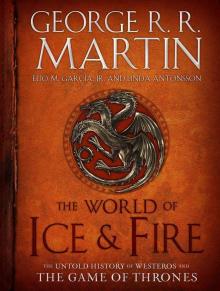 The World of Ice & Fire: The Untold History of Westeros and the Game of Thrones (A Song of Ice and Fire)
The World of Ice & Fire: The Untold History of Westeros and the Game of Thrones (A Song of Ice and Fire)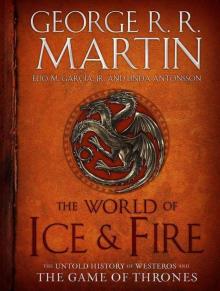 The World of Ice & Fire: The Untold History of Westeros and the Game of Thrones
The World of Ice & Fire: The Untold History of Westeros and the Game of Thrones Busted Flush wc-19
Busted Flush wc-19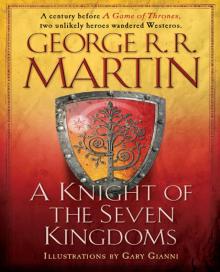 A Knight of the Seven Kingdoms
A Knight of the Seven Kingdoms Nightflyers: The Illustrated Edition
Nightflyers: The Illustrated Edition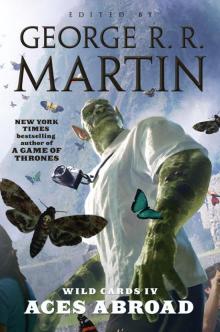 Wild Cards IV
Wild Cards IV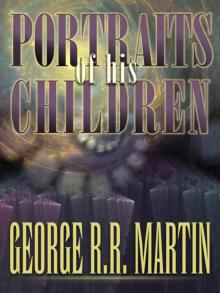 Portraits of His Children
Portraits of His Children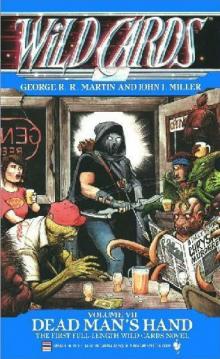 Dead Mans Hand wc-7
Dead Mans Hand wc-7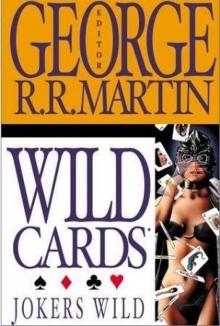 Jokers Wild wc-3
Jokers Wild wc-3 The Lonely Songs of Laren Dorr
The Lonely Songs of Laren Dorr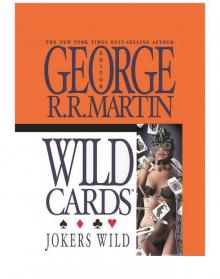 Wild Cards III: Jokers Wild
Wild Cards III: Jokers Wild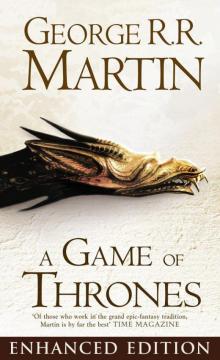 A Game of Thrones Enhanced Edition
A Game of Thrones Enhanced Edition Nightflyers & Other Stories
Nightflyers & Other Stories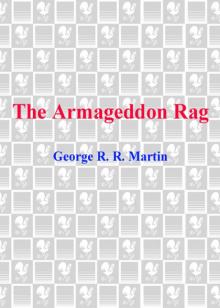 Armageddon Rag
Armageddon Rag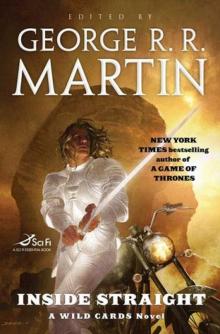 Wild Cards: Inside Straight
Wild Cards: Inside Straight A Song for Lya
A Song for Lya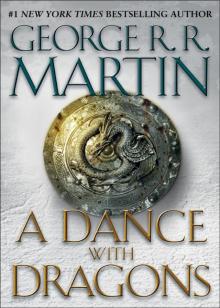 A Dance with Dragons: A Song of Ice and Fire: Book Five
A Dance with Dragons: A Song of Ice and Fire: Book Five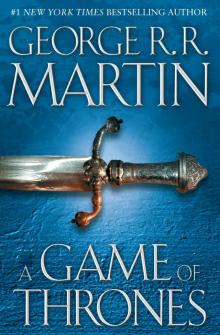 Song of Fire & Ice 01 - A Game of Thrones
Song of Fire & Ice 01 - A Game of Thrones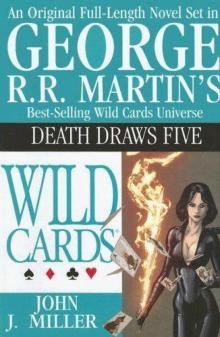 Death Draws Five wc-17
Death Draws Five wc-17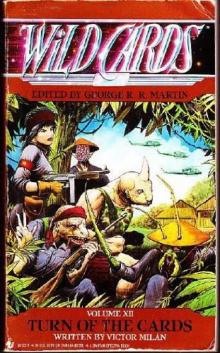 Turn of the Cards w-12
Turn of the Cards w-12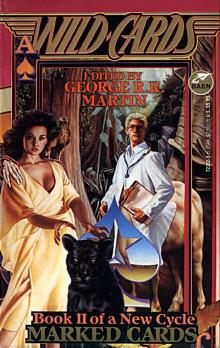 Wild Cards 14 - Marked Cards
Wild Cards 14 - Marked Cards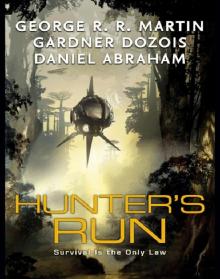 Hunter's Run
Hunter's Run The Glass Flower
The Glass Flower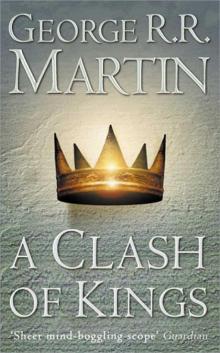 A Clash of Kings asoiaf-2
A Clash of Kings asoiaf-2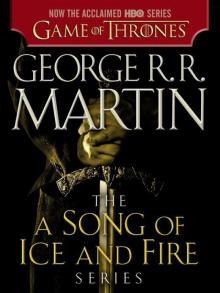 A Game of Thrones 5-Book Bundle: A Song of Ice and Fire Series: A Game of Thrones, A Clash of Kings, A Storm of Swords, A Feast for Crows, and A Dance with Dragons (Song of Ice & Fire)
A Game of Thrones 5-Book Bundle: A Song of Ice and Fire Series: A Game of Thrones, A Clash of Kings, A Storm of Swords, A Feast for Crows, and A Dance with Dragons (Song of Ice & Fire)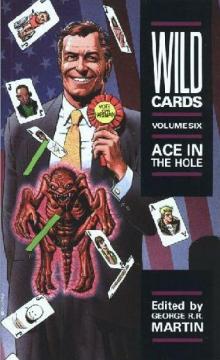 Ace In The Hole wc-6
Ace In The Hole wc-6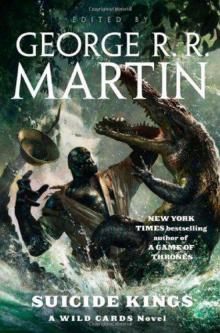 Suicide Kings wc-20
Suicide Kings wc-20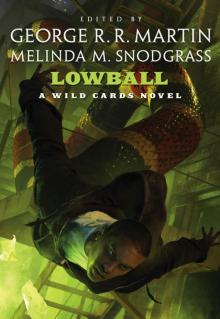 Lowball
Lowball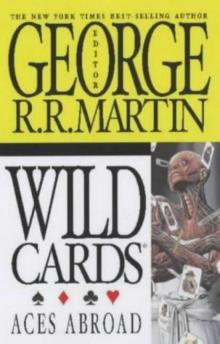 Aces Abroad wc-4
Aces Abroad wc-4 George R. R. Martin's a Game of Thrones 4-Book Bundle
George R. R. Martin's a Game of Thrones 4-Book Bundle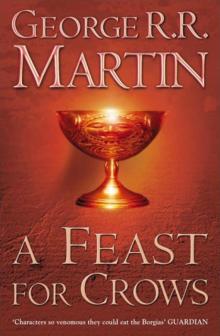 A Feast for Crows asoiaf-4
A Feast for Crows asoiaf-4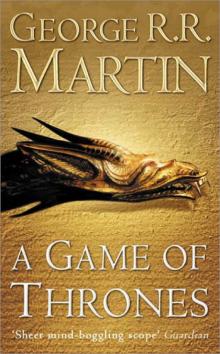 A Game of Thrones asoiaf-1
A Game of Thrones asoiaf-1 The Mystery Knight ttodae-3
The Mystery Knight ttodae-3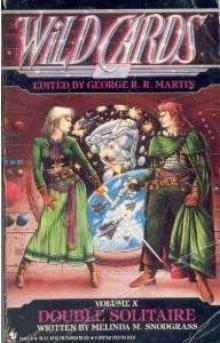 Double Solitaire w-10
Double Solitaire w-10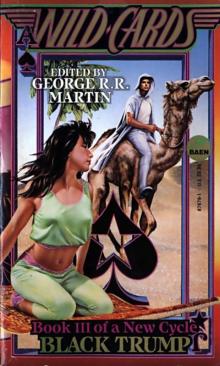 Wild Cards 15 - Black Trump
Wild Cards 15 - Black Trump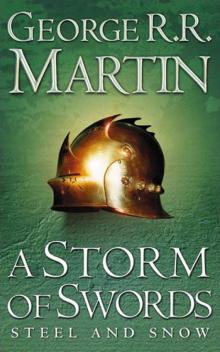 A Storm of Swords asoiaf-3
A Storm of Swords asoiaf-3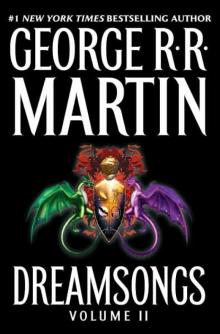 The Hedge Knight ttodae-1
The Hedge Knight ttodae-1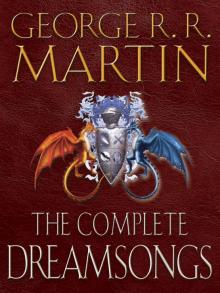 Dreamsongs 2-Book Bundle
Dreamsongs 2-Book Bundle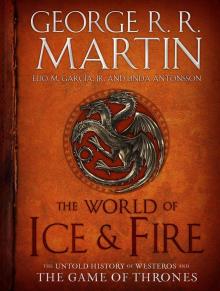 The World of Ice & Fire
The World of Ice & Fire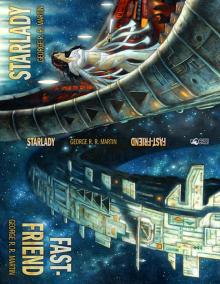 Starlady & Fast-Friend
Starlady & Fast-Friend Old Mars
Old Mars Fantasy For Good: A Charitable Anthology
Fantasy For Good: A Charitable Anthology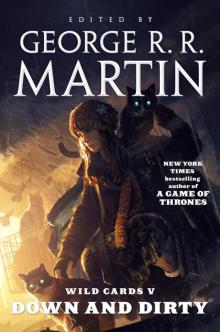 Wild Cards V
Wild Cards V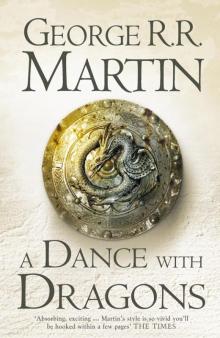 A Dance with Dragons asoiaf-5
A Dance with Dragons asoiaf-5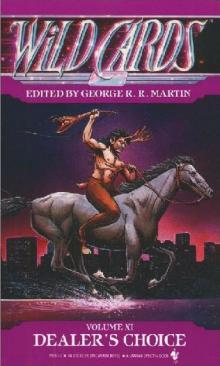 Dealer's Choice w-11
Dealer's Choice w-11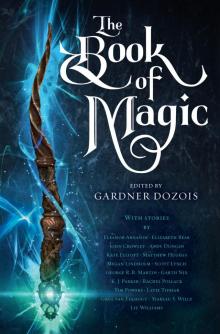 The Book of Magic
The Book of Magic A Game of Thrones 4-Book Bundle
A Game of Thrones 4-Book Bundle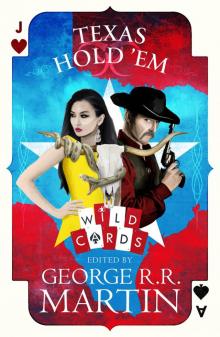 Texas Hold 'Em
Texas Hold 'Em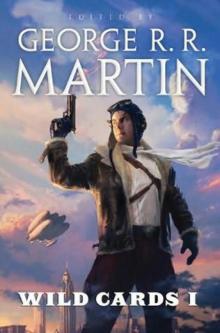 Wildcards wc-1
Wildcards wc-1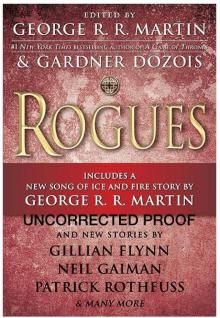 Rogues
Rogues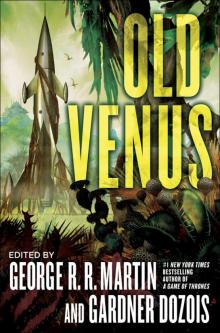 Old Venus
Old Venus